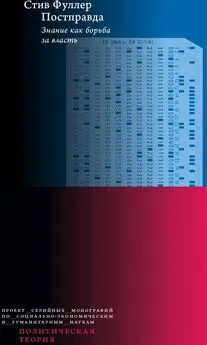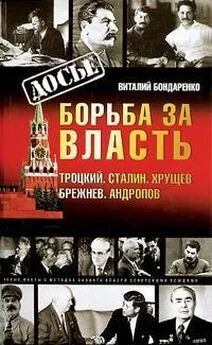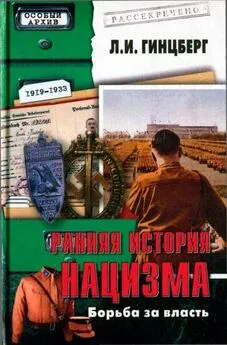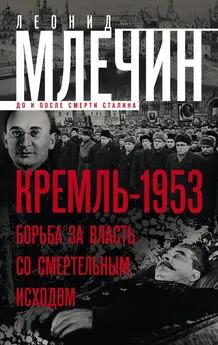Стив Фуллер - Постправда: Знание как борьба за власть
- Название:Постправда: Знание как борьба за власть
- Автор:
- Жанр:
- Издательство:Литагент Высшая школа экономики
- Год:2018
- ISBN:978-5-7598-1852-6
- Рейтинг:
- Избранное:Добавить в избранное
-
Отзывы:
-
Ваша оценка:
Стив Фуллер - Постправда: Знание как борьба за власть краткое содержание
Книга адресована специалистам в области политологии, социологии и современной философии. В формате a4.pdf сохранен издательский макет.
Постправда: Знание как борьба за власть - читать онлайн бесплатно ознакомительный отрывок
Интервал:
Закладка:
Latour B. (1987). Science in Action. Milton Keynes, UK: Open University Press.
Latour B. (1993). We Have Never Been Modern. Cambridge, MA: Harvard University Press.
Latour B. (2004). Why Has Critique Run Out of Steam? From Matters of Fact to Matters of Concern // Critical Inquiry. No. 30(2). P. 225–248.
Lecourt D . (1976). Proletarian Science? London: Verso.
Lepenies W. (1988). Between Literature and Science: The Rise of Sociology. Cambridge, UK: Cambridge University Press.
Lessig L. (2001). The Future of Ideas: The Fate of the Commons in a Connected World. New York: Random House.
Lippmann W. (1922). Public Opinion. New York: Harcourt, Brace and Company.
Lippmann W. (1925). The Phantom Public. New York: Macmillan.
Lynch W . (2001). Solomon’s Child. Palo Alto, CA: Stanford University Press.
Maslow A. (1998). Maslow on Management. New York: John Wiley & Sons.
Mayer J. (2016). Dark Money: The Hidden History of the Billionaires behind the Rise of the Radical Right. London: Penguin.
Mazlish B. (1989). A New Science: The Breakdown of Connections and the Birth of Sociology. Oxford: Oxford University Press.
Mazzucato M. (2013). The Entrepreneurial State. London: Anthem Press.
McCloskey D. (1982). The Rhetoric of Economics. Madison: University of Wisconsin Press.
McCloskey D. (2006). The Bourgeois Virtues: Ethics for an Age of Commerce. Chicago: University of Chicago Press.
McCloskey D. (2010). Bourgeois Dignity: Why Economics Can’t Explain the Modern World. Chicago: University of Chicago Press.
McKenzie R., Tullock G . ([1975] 2012). The New World of Economics. 6th ed. Berlin: Springer.
McLuhan M . (1951). The Mechanical Bride. New York: Vanguard Press.
Mead C . (2013). War Play: Video Games and the Future of Conflict. Boston: Houghton Mifflin Harcourt.
Melzer A. (2014). Philosophy between the Lines: The Lost History of Esoteric Writing. Chicago, IL: University of Chicago Press.
Merton R. (1965). On the Shoulders of Giants. New York: Free Press.
Merton R. ([1949] 1968a). Social Theory and Social Structure. 3rd ed. New York: Free Press.
Merton R. (1968b). The Matthew Effect in Science // Science. No. 159(3810). P. 56–63.
Merton R. (1976). Sociological Ambivalence and Other Essays. New York: Free Press.
Milbank J . (1990). Theology and Social Theory. Oxford: Blackwell.
Mirowski P . (2002). Machine Dreams: How Economics Became a Cyborg Science. Cambridge, UK: Cambridge University Press.
Morozov E . (2013). To Save Everything, Click Here. London: Allen Lane.
Neumann M . (2006). A Formal Bridge between Epistemic Cultures: Objective Possibility in the Times of the Second German Empire // Foundations of the Formal Sciences: History of the Concept of the Formal Sciences / ed. by B. Löwe, V. Peckhaus, T. Räsch. London: Kings College Publications. P. 169–182.
Nida E . (1964). Towards a Science of Translation. The Hague: E.J. Brill.
Nisbett R., Ross L . (1980). Human Inference: Strategies and Shortcomings of Human Judgement. Englewood Cliffs, NJ: Prentice-Hall.
Oreskes N., Conway E. M. (2011). Merchants of Doubt: How a Handful of Scientists Obscured the Truth on Issues from Tobacco Smoke to Global Warming. New York: Bloomsbury.
Parsons T . (1937). The Structure of Social Action. New York: McGraw-Hill.
Penrose R . (1989). The Emperor’s New Mind. Oxford: Oxford University Press.
Peoples L . (2010). The Citation of Wikipedia in Judicial Decisions // Yale Journal of Law and Technology. No. 12(1). P. 1–51.
Pettegree A . (2005). Reformation and the Culture of Persuasion. Cambridge, UK: Cambridge University Press.
Phillips A . (2017). Playing the Game in the Post-Truth Era // Social Epistemology Review and Reply Collective. 30 June. .
Pickering A . (2010). The Cybernetic Brain. Chicago: University of Chicago Press.
Polanyi K . (1944). The Great Transformation. New York: Farrar and Rinehart.
Popper K. (1957). The Poverty of Historicism. New York: Harper and Row.
Popper K. (1963). Conjectures and Refutations. London: Routledge & Kegan Paul.
Popper K. (1981). The Rationality of Scientific Revolutions // In Scientific Revolutions / ed. by I. Hacking. Oxford: Oxford University Press. P. 80–106.
Porter T . (1986). The Rise of Statistical Thinking, 1820–1900. Princeton: Princeton University Press.
Postman N . (1985). Amusing Ourselves to Death: Public Discourse in the Age of Show Business. New York: Penguin.
Poulakos J . (1990). Interpreting Sophistical Rhetoric: A Response to Schiappa // Philosophy and Rhetoric. No. 23. P. 218–228.
Prendergast C . (1986). Alfred Schutz and the Austrian School of Economics // American Journal of Sociology. No. 92. P. 1–26.
Price D . (1963). Little Science, Big Science. New York: Columbia University Press.
Prigogine I., Stengers I . (1984). Order out of Chaos. New York: Bantam.
Proctor R . (1991). Value-Free Science? Purity and Power in Modern Knowledge. Cambridge, MA: Harvard University Press.
Putnam H . (1978). Meaning and the Moral Sciences. London: Routledge.
Rabinbach A . (1990). The Human Motor: Energy, Fatigue and the Origins of Modernity. New York: Basic Books.
Rawls J . (1971). A Theory of Justice. Cambridge, MA: Harvard University Press.
Reisch G . (1991). Did Kuhn Kill Logical Positivism? // Philosophy of Science. No. 58. P. 264–277.
Ricoeur P . ([1965] 1970). Freud and Philosophy. New Haven, CT: Yale University Press.
Rorty R . (1979). Philosophy and the Mirror of Nature. Princeton: Princeton University Press.
Ross A . (ed.) (1996). Science Wars. Durham, NC: Duke University Press.
Ross D . (1991). The Origins of American Social Science. Cambridge, UK: Cambridge University Press.
Rothschild E . (2002). Economic Sentiments. Cambridge, MA: Harvard University Press.
Rushkoff D . (2010). Program or Be Programmed. New York: O/R Books.
Schiappa E . (1990a). Did Plato Coin Rhetorike? // American Journal of Philology. No. 111. P. 457–470.
Schiappa E . (1990b). Neo-Sophistic Rhetorical Criticism or the Historical Reconstruction of Sophistic Doctrines? // Philosophy and Rhetoric. No. 23. P. 192–217.
Schiff T . (2006). Know It All: Can Wikipedia Conquer Expertise? // New Yorker. 31 July.
Schomberg R. von (2006). The Precautionary Principle and Its Normative Challenges // Implementing the Precautionary Principle: Perspectives and Prospects / ed. by E. Fisher, J. Jones, R. von Schomberg. Cheltenham: Edward Elgar. P. 19–42.
Schomberg R. von (2013). A Vision of Responsible Research and Innovation // Responsible Innovation / ed. by R. Owen, M. Heintz, J. Bessant. London: John Wiley. P. 51–74.
Schumpeter J . (1942). Capitalism, Socialism and Democracy. New York: Harper & Row.
Schutz A . (1946). The Well-Informed Citizen: An Essay on the Social Distribution of Knowledge // Social Research. No. 13. P. 463–478.
Sellars W . (1963). Science, Perception and Reality. London: Routledge and Kegan Paul.
Sennett R . (1977). The Fall of Public Man. New York: Alfred Knopf.
Serres M., Latour B . (1995). Conversations on Science, Culture, and Time. Ann Arbor: University of Michigan Press.
Shapin S., Schaffer S . (1985). Leviathan and the Air-Pump. Princeton: Princeton University Press.
Shaplin A . (2009). The Tragedy of Thomas Hobbes. London: Oberon.
Simon H. (1947). Administrative Behaviour. New York: Macmillan.
Simon H. ([1969] 1981). The Sciences of the Artificial. 2nd ed. Cambridge, MA: MIT Press.
Sismondo S . (2017). Post-Truth? // Social Studies of Science. No. 47(1). P. 3–6.
Smil V . (2001). Enriching the Earth. Cambridge, MA: MIT Press.
Smolin L . (2006). The Trouble with Physics. New York: Houghton Mifflin.
Stinchcombe A . (1990). Information and Organizations. Berkeley: University of California Press.
Stokes D . (1997). Pasteur’s Quadrant: Basic Science and Technological Innovation. Washington, DC: Brookings Institution Press.
Strauss L. ([1948] 2000). On Tyranny. Chicago: University of Chicago Press.
Sunstein C . (2001). Republic.com. Princeton: Princeton University Press.
Swanson D . (1986). Undiscovered Public Knowledge // Library Quarterly. No. 56(2). P. 103–118.
Taleb N.N. (2012). Antifragile. London: Allen Lane.
Tetlock P . (2003). Thinking the Unthinkable: Sacred Values and Taboo Cognitions // Trends in Cognitive Science. No. 7(7). P. 320–324.
Tetlock P . (2005). Expert Political Judgement: How Good Is It? How Can We Know? Princeton: Princeton University Press.
Tetlock P., Gardner D. (2015). Superforecasting: The Art and Science of Prediction. New York: Crown Publishers.
Thompson M., Ellis R., Wildavsky A . (1990). Cultural Theory. Boulder, CO: Westview Press.
Tkacz N . (2015). Wikipedia and the Politics of Openness. Chicago: University of Chicago Press.
Toffler A . (1970). Future Shock. New York: Random House.
Tollison R. (ed.) (1985). Smoking and Society: Toward a More Balanced Assessment. Lanham, MD: Lexington Books.
Turner S . (2003). Liberal Democracy 3.0. London: Sage.
Turner S . (2010). Explaining the Normative. Cambridge, UK: Polity Press.
Turner S., Factor R. (1994). Max Weber: The Lawyer as Social Thinker. London: Routledge.
Tuvel R . (2017). In Defence of Transracialism // Hypatia. No. 32. P. 263–278.
Vaihinger H . ([1911] 1924). The Philosophy of ‘As If’. London: Routledge and Kegan Paul.
Wark M. (2004). A Hacker Manifesto. Cambridge, MA: Harvard University Press.
Wendt A . (2015). Quantum Mind and Social Science. Cambridge, UK: Cambridge University Press.
White M. (1949). Social Thought in America: The Revolt against Formalism. New York: Viking Press.
Woolgar S . (1991). Configuring the User: The Case of Usability Trials // A Sociology of Monsters: Essays on Power, Technology and Domination / ed. by J. Law. London: Routledge. P. 58–97.
Wootton D . (2006). Bad Medicine: Doctors Doing Harm since Hippocrates. Oxford: Oxford University Press.
Wuthnow R . (1989). Communities of Discourse: Ideology and Social Structure in the Reformation, the Enlightenment and European Socialism. Cambridge, MA: Harvard University Press.
1
Термин « post-truth » чаще на русский переводится как «постправда», однако здесь используется вариант «постистина», более соответствующий подходу автора, ориентированному, в частности, на эпистемологию и социологию науки. – Примеч. пер .
2
Борис Джонсон был не министром без портфеля, а мэром Лондона и по этой должности имел право участвовать в заседании кабинета министров. – Примеч. ред .
Читать дальшеИнтервал:
Закладка:








![Илья Земцов - Андропов [Политические дилеммы и борьба за власть]](/books/1097721/ilya-zemcov-andropov-politicheskie-dilemmy-i-borb.webp)
